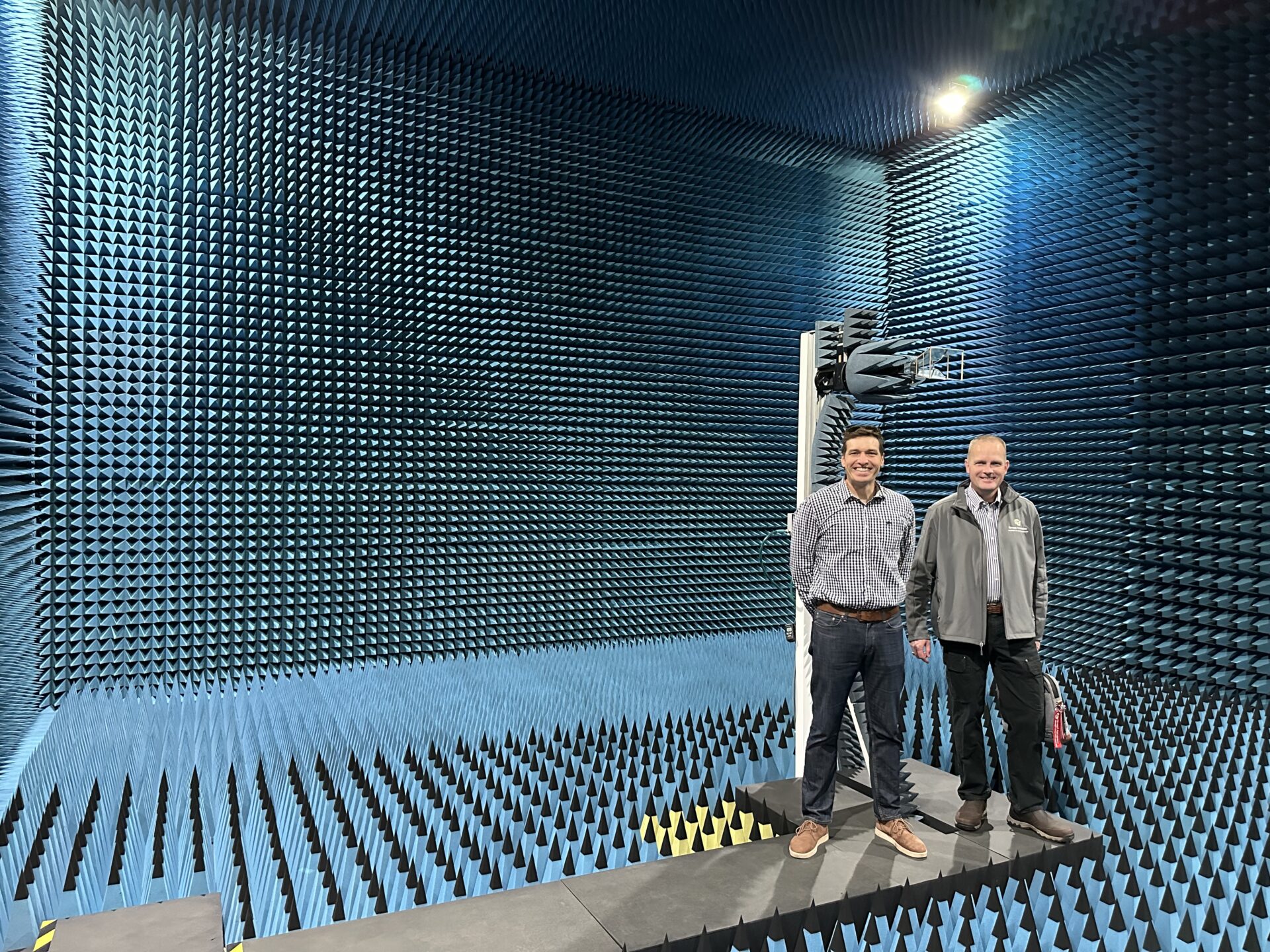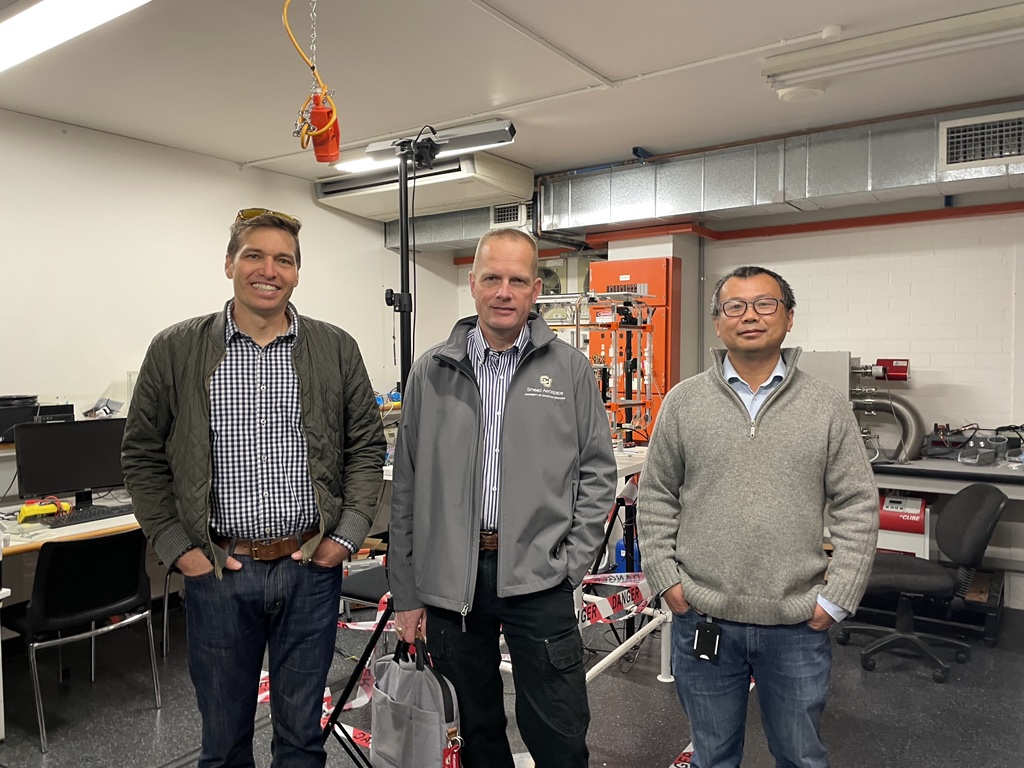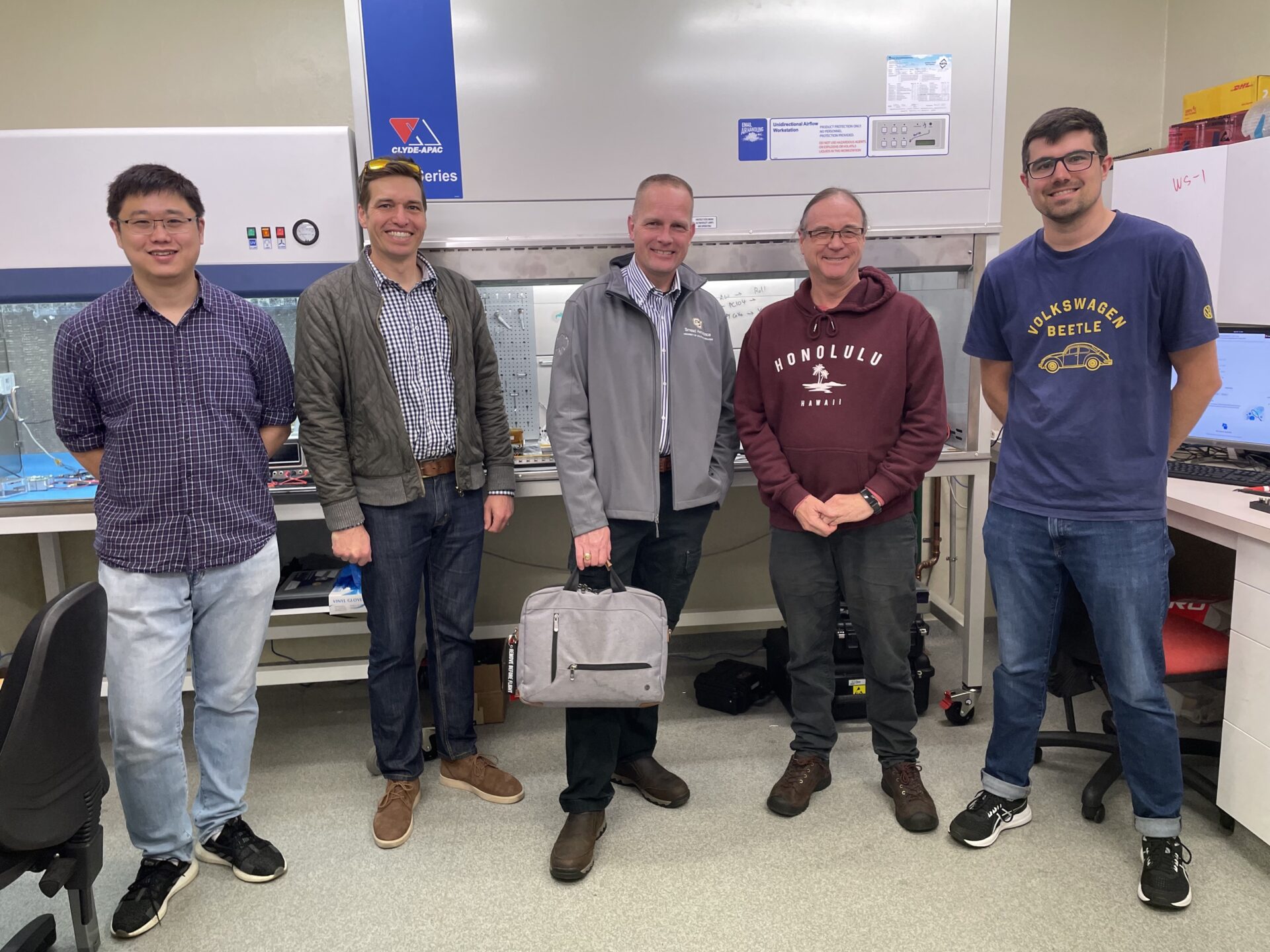Last week, I had the pleasure of accompanying SmartSat Visiting Researcher, Professor Hanspeter Schaub, to tour some of our Sydney-based partner’s laboratories and facilities. From the University of Boulder in Colorado, Professor Schaub is the Department Chair, Director of the Autonomous Vehicle Systems (AVS) Laboratory and Schaden Leadership Chair. His expertise and research is in Guidance Navigation and Control, Autonomy and Astrodynamics, with his lab being responsible for the Guidance, Navigation and Contol (GNC) algorithms on the successful Emirates Mars Mission, Hope.
 Dr Carl Seubert (left) and Professor Hanspeter Schaub (right) in the Antenna Chamber at UTS Tech Lab
Dr Carl Seubert (left) and Professor Hanspeter Schaub (right) in the Antenna Chamber at UTS Tech Lab
At the University of Sydney, Professor Schaub and I visited the Australian Centre for Field Robotics where Professor Salah Sukkarieh and Professor Stefan Williams are developing autonomous robots from underwater to space. Also at The University of Sydney, Dr Xiaofeng Wu showed us around his lab for small spacecraft technology developments. At the ARC Training Centre for Cubesats, UAVs & their Applications, Professor Iver Cairns showed us work being done on Waratah Seed CubeSat, to which SmartSat has committed $1M towards payload developments.
 Dr Xiaofeng Wu (right) shows Dr Carl Seubert and Professor Hanspeter Schaub around the lab for small spacecraft technology developments at the University of Sydney.
Dr Xiaofeng Wu (right) shows Dr Carl Seubert and Professor Hanspeter Schaub around the lab for small spacecraft technology developments at the University of Sydney.
At the University of Technology Sydney (UTS) Tech Lab, we were delighted to see the facilities and industry spaces on offer thanks to our guide, Director of Business Development Roger Kermode. At the University of New South Wales Australian Centre for Space Engineering Research (ACSER) we saw the global navigation satellite system (GNSS) receiver that is currently in development with Director Andrew Dempster and his team.
 (Left to right) Dr Xueliang Bai, Dr Carl Seubert, Professor Hanspeter Schaub, Professor Iver Cairns and Patrick Oppel at the Waratah Seed CubeSat development lab at the University of Sydney
(Left to right) Dr Xueliang Bai, Dr Carl Seubert, Professor Hanspeter Schaub, Professor Iver Cairns and Patrick Oppel at the Waratah Seed CubeSat development lab at the University of Sydney
Professor Schaub and SmartSat Professorial Chair Ryszard Kowalczyk are currently exploring collaboration opportunities around spacecraft autonomy under the Scarlet Lab, building on their respective work, including SmartSat Project P2.52 SCARLET-⍺: SpaceCraft Autonomy and Onboard AI for Next Generation Space Systems. The collaboration will provide an intersection between spacecraft operations, command and control, as well as use of AI to optimise mission objectives with efficient resource utilisation.
The SmartSat Visiting Researcher Scheme (VRS) is designed to enable SmartSat and its university partners to host world class researchers with a view to enhancing their research capability and fostering future collaboration. You can find out more about the VRS and eligibility criteria here.

Dr Carl Seubert
Chief Research Officer